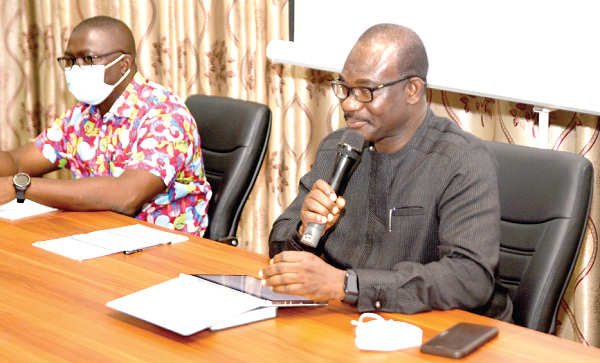
Deliberations on maximising water, energy resources underway in Accra
Researchers from Ghana, Kenya and Uganda have begun deliberations in Accra on how to maximise water, energy and food resources for the development of African cities.
They will also come up with solutions as to how government agencies can team up to enhance the achievement of the UN Sustainable Development Goals (SDGs) in two selected cities, Accra and Kampala, where a two-year project is being piloted.
Advertisement
The three-day workshop forms part of activities under a project dubbed: “Enhancing the sustainability and resilience of African cities using a water-energy-food nexus approach (EnsureWEF)”.
The initiative is being supported by the leading integrated research for agenda 2030 in Africa (LIRA 2030 Africa) programme to enhance the sustainability and resilience of Accra and Kampala through integrated and participatory knowledge generation, application and governance.
The project is being implemented by the Water Research Institute (WRI) of the Council for Scientific and Industrial Research (CSIR) and partners, such as the land use and spatial planning authority of Ghana, the University of Pretoria, South Africa, the Kampala City Authority, Uganda, the University of Nairobi, the Multimedia University, the Environmental Sustainability and Poverty Alleviation Group (ESPAG) and the Co-operative University, all in Kenya.
Significance
The Director of the CSIR-WRI, Professor Mike Osei-Atweneboana, said food, water and energy resources were significant to life.
He said participants would engage in participatory scenario development to enhance the skills of project partners, the WEF and city stakeholders in the design and use of scenarios to inform decision-making, planning and governance of WEF resources.
He said key sectors in the country’s development agenda, particularly water, energy and food, were extremely critical, hence the need for more collaboration.
"As countries, we strive to achieve universal access to water, energy and food. However, currently, access to WEF is skewed against the poor and the vulnerable. Even the COVID-19 pandemic has uncovered and accentuated the inequitable access to WEF in society.
“And there is the need to shift from the silos approach to the nexus approach of addressing water, energy and food security," Prof. Osei-Atweneboana said.
According to him, the nexus approach could enhance water, energy and food security for increased resources use, efficiency and improvement in WEF governance for sustainable and resilient cities.
Nexus approach
The Project Coordinator of EnsureWEF, who is also the Head of the Surface Water Division of the CSIR-WRI, Dr Emmanuel Obuobie, said when systems were designed and implemented in silos, it was difficult to achieve maximum benefit for the greater good of society.
"There are numerous benefits in integrating the systems we implement in a country or city. If we operationalise nexus thinking, it will go a long way to help us," he added.
He, however, said the initial implementation of the nexus approach could be challenging, "as we have been running in silos for a long time”.
“It will be difficult to integrate, as some institutions will lose part of their authority to other institutions,” he said, adding that “some institutions have to be ready to sacrifice some of their powers to make integration easy".




